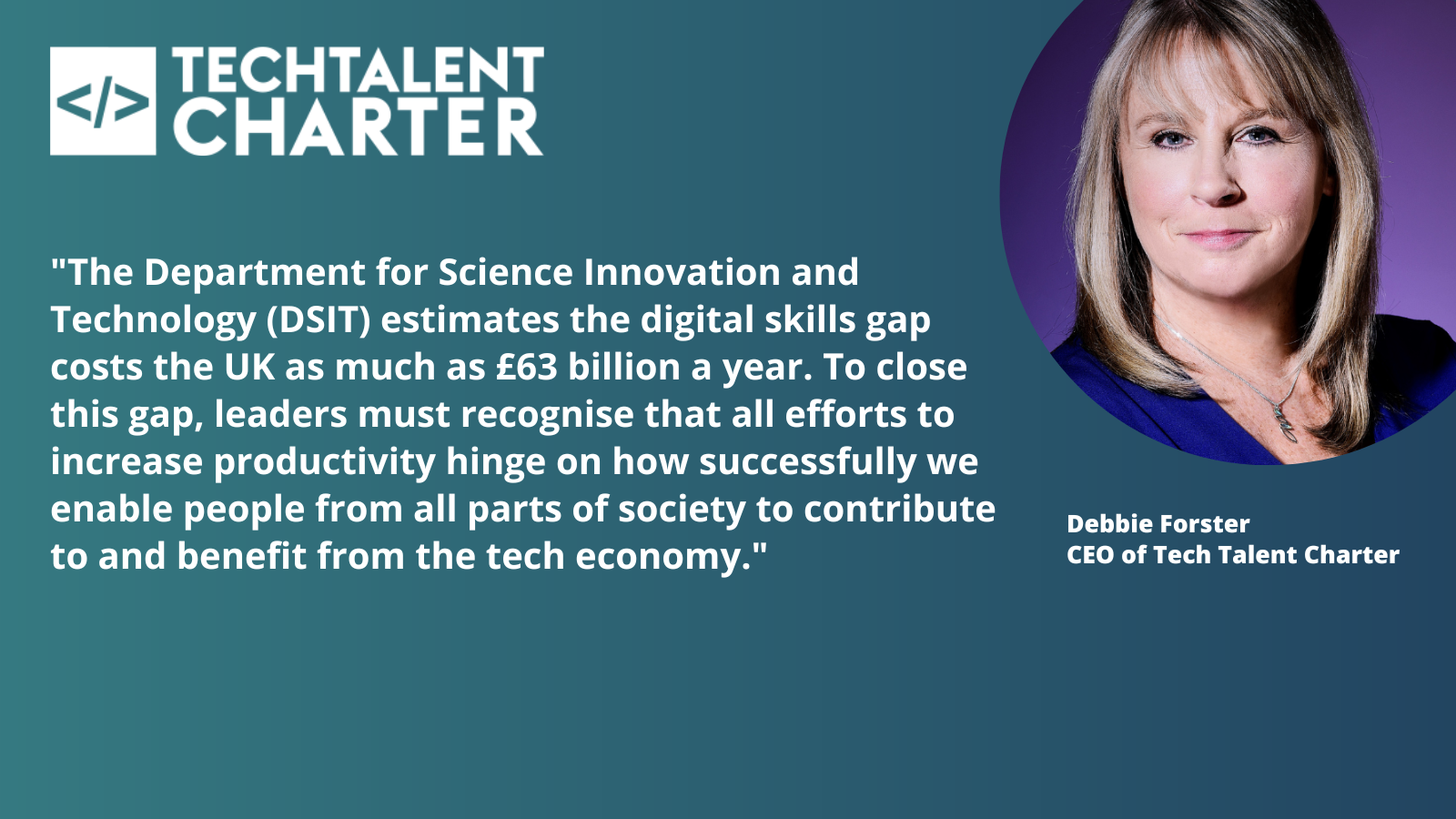The Tech Talent Charter's sixth annual Diversity in Tech report
The Tech Talent Charter's (TTC) sixth annual Diversity in Tech report provides measurement, insights, and actionable ways forward, with the aim of improving diversity and inclusion in tech. The Diversity in Tech report is based on survey submissions from 649 of their Signatory organisations, employing over 930,000 people, of which 210,000+ are tech employees. That makes this one of the largest, broadest, and most up-to-date D&I analyses of its kind.
techUK is a founding signatory of the TTC - a commitment by organisations to a set of undertakings that aim to deliver greater diversity in the tech workforce of the UK, one that better reflects the make-up of the population.
Key findings from the report:
- 28% of tech workers are gender minorities, slightly higher than past years (+1-2%).
- Only 35% of companies are measuring non-binary gender diversity.
- 25% of tech workers belong to ethnic minority groups, compared to 20% reported last year.
- Average disclosure rates for ethnic identity are at 76-86%.
- 22% of senior tech roles are held by gender minorities - 6% lower than tech roles overall.
- Ethnic diversity almost halves in senior roles from 25% to 13%.
- D&I measurement and practice on social mobility lags far behind other areas including age, religion and orientation.
- Flexible work options are widely available for tech employees and nearly half (47%) have the option to remote work as much as they like, from wherever they like.
- Neurodiversity emerged as a distinct area of interest; the number of organisations measuring it doubled to 53%, compared to last year.
- Mental health and wellbeing and reproductive health issues such as menopause and fertility are areas of focus for many organisations, especially in relation to gender, age and LGBTQ+ inclusion.
D&I in tech has previously struggled with reductive attempts to “just hire more women” but we now see a much more holistic approach to increase underrepresented groups’ engagement in the tech talent market. Many Signatories recognise that to attract and retain an in-demand and diverse tech workforce, they need to work on multiple lenses of inclusion at the same time, and at all levels of their business, to build their understanding of how these lenses interact throughout a career journey.
Pay gap reporting in particular continues to sharpen focus on diversity in senior roles and organisations are zeroing in on the need to improve not only the opportunity for underrepresented groups to get into tech, but also the culture they experience when they land, how they are developed, promoted and retained. Having reported last year that diversity in senior roles was one of the biggest challenges organisations face, TTC are pleased to share that a significant number of Signatories responded to the call to report a new data point to us: the gender diversity and ethnic diversity data for their most senior tech employees.
Signatories’ support and willingness to provide more data led to an expansion of the D&I survey, which for the first time includes questions on eight diversity lenses. This has enabled them to provide wider insights and dig deeper into burgeoning areas of D&I practice, such as neurodiversity and reproductive health. But crucially it has also spotlighted the areas where work is still lacking, such as in social mobility.
Armed with these insights, the TTC will redouble our efforts to support our Signatories and the wider business community with D&I resources that can make a difference.
Alongside the report, the TTC are pleased to launch a dynamic benchmarking calculator, to enable organisations to compare their diversity with organisations in their sector, size category and region.



